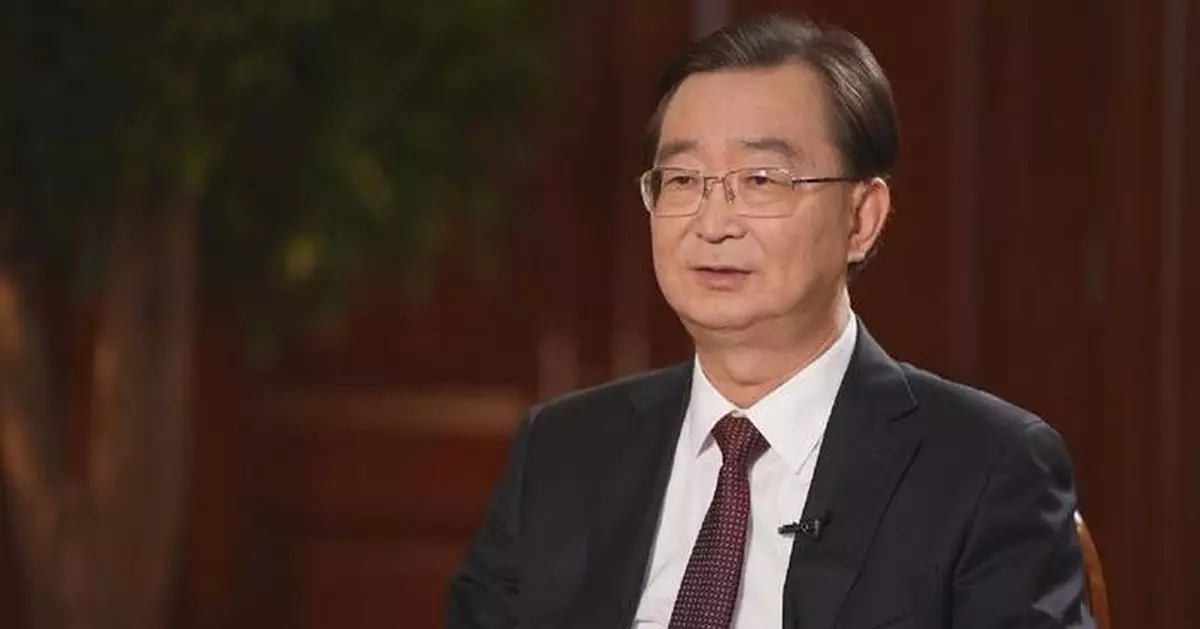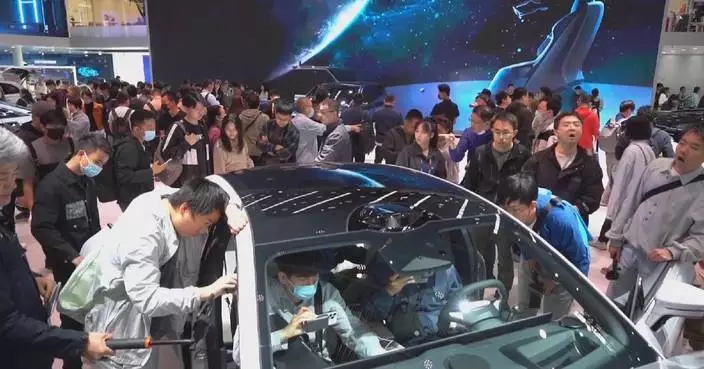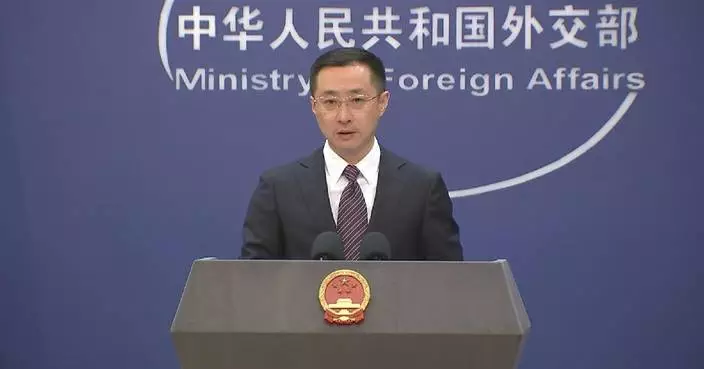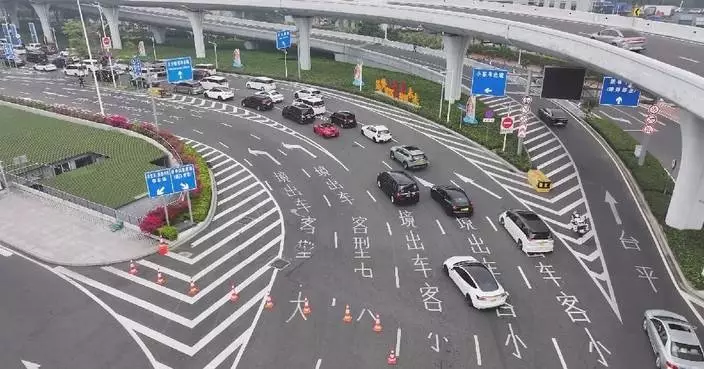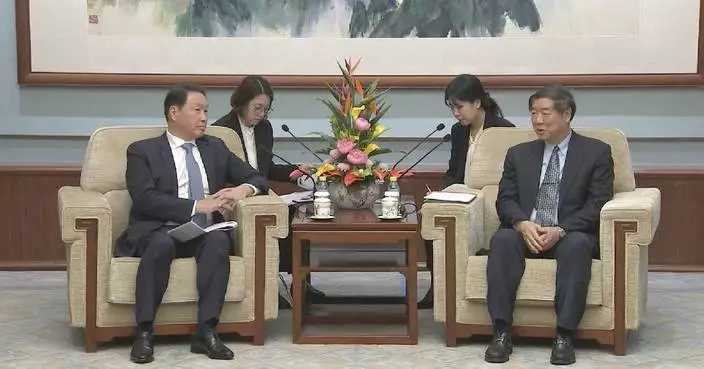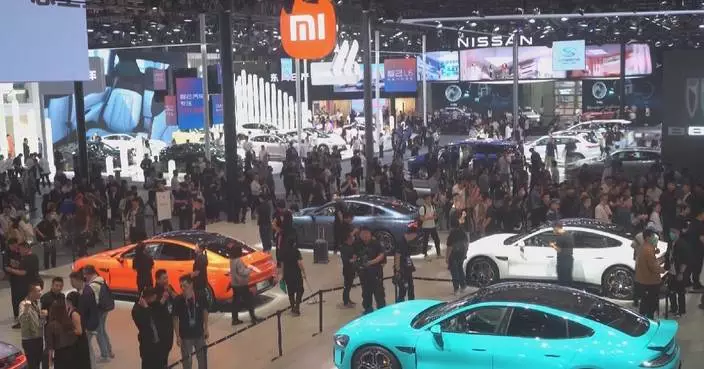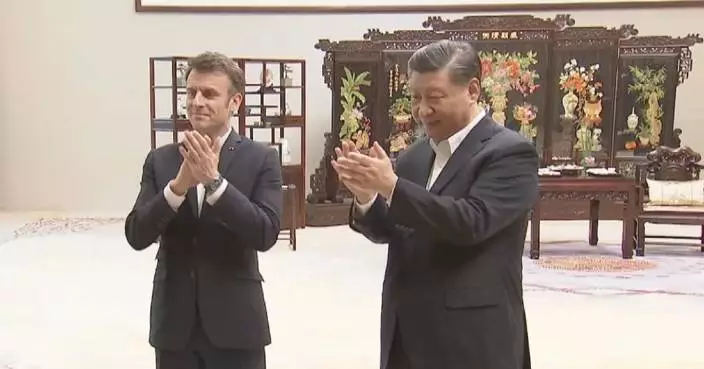The China-Laos Railway, a landmark project of high-quality Belt and Road cooperation, has brought tangible benefits to towns and people along the line in both countries, said Wang Ning, secretary of the provincial Communist Party Committee in southwest China's Yunnan where the railway starts.
In a recent interview with China Global Television Network (CGTN), Wang said that the China-Laos Railway has played a vital role in promoting regional economic development.
"The China-Laos Railway, as a path of development, happiness and friendship, has far exceeded our initial expectations since it began operational two years ago. Its reach has extended to the 31 provinces, municipalities and autonomous regions within Chinese mainland, as well as 12 other countries involved in joint construction of the Belt and Road. This railway has not only fostered closer ties between the peoples of China and Laos but has also closely connected China's market with that of ASEAN, creating a golden corridor for regional economic development," he said.
Many locals in Laos and the broader Southeast Asia, and even international travelers highly appreciate the China-Laos Railway. Wang said the railway has greatly enhanced connectivity and facilitated trade along the line.
"The most direct effect has been connectivity enhancement. In the past, transporting durians from Thailand to Kunming by ship or by truck would take a week. Now, with the China-Laos Railway in operation, it takes no more than two days. Many travelers have remarked on how convenient the railway freight is. One can have rice noodle for breakfast in Kunming in the morning and enjoy spring rolls in Vientiane for dinner in the evening," he said.
"This major corridor has led to substantial improvement in logistics, which in turn has spurred significant trade growth. For a long time, border towns in Yunnan have always bustled on market days, with people from both sides of the border mingling in the same streets. Now, cross-border trade has become even more convenient. Last year, Yunnan's border trade and barter trade between border residents both increased by over 50 percent, indicating very rapid growth," Wang said.
The China-Laos Railway began operations in December 2021. The 1,035-kilometer railway connects Kunming, the provincial capital of Yunnan, with the Lao capital Vientiane.
It has become a docking project between the China-proposed Belt and Road Initiative (BRI) and Laos' strategy to convert itself from a landlocked country to a land-linked hub in the Indo-China Peninsula, benefiting both countries and beyond.
The railway's cargo transport services have covered 12 Belt and Road partner countries.

China-Laos Railway benefits regional economy: Yunnan provincial Party chief
The year 2024 celebrates the 60th anniversary of China-France diplomatic ties, and it also heralds the China-France Year of Cultural Tourism, a celebration aimed at bolstering cultural and people-to-people exchanges through a series of enriching events.
During a special episode focused on this milestone, cultural experts and influencers from both nations shared insights into the depth of Sino-French cultural interactions.
The discussion, livestreamed from Shanghai on April 22, began with a historical overview, notably when then-Chinese Premier Zhou Enlai introduced President Georges Pompidou to the Yungang Grottoes, a renowned Buddhist cave site in north China's Shanxi. These caves feature intricate carvings that reflect religious and cultural syntheses from the 5th and 6th centuries.
David Gosset, founder of the China-Europe-America Global Initiative, commented on the geopolitical context of the initial outreach.
"People have to remember that we were in the middle of the Cold War, therefore, the world was divided. For a Western country like France to reach out to China, and of course vice versa, it's a beautiful moment, historical diplomatic breakthroughs, means that despite all the geopolitical difficulties, a spirit of cooperation and friendship can prevail," said Gosset.
Xie Dingwei, executive director of the Bund One Art Museum, emphasized the importance of preserving cultural heritage.
"We need to preserve these cultural heritages. We not [just] preserve the sculptures or the buildings itself, but also, it gives us a chance to see hundreds of years ago, how our craftsmanship, our architecture, our human beings, we have reached [such] high levels, which brings us to the present time these treasures, these values. This is something we really cannot afford to lose. Culture is a common language; it doesn't matter you're Eastern art or Western art, somehow they can be connected. So this is something I think it creates a communication channel between the nations," said Xie.
The cultural connection was recently demonstrated during a meeting last April between French President Emmanuel Macron and Chinese President Xi Jinping, where they enjoyed the performance of "Flowing Water" played on the Guqin by a Chinese artist, symbolizing the flowing friendship between the two nations.
"This communication on art subjects between the nations and different peoples are really, really important. It goes beyond politics, beyond the differences between the nations. But you all go to getting closer to understanding each other," said Xie.
Gosset also supported the notion of fostering unity through cultural platforms, aligning with President Xi Jinping's idea of building a community with a shared future.
"I am completely aligned with this idea. We are on the same boat. Our world is frightened by too many divisions. And I think, what is important is to support the forces that can unite us, so it can be music, and certainly museums, and you need leaders with a vision that does not separate us," said Gosset.

Six decades of China-France diplomatic relations highlighted by cultural exchange



